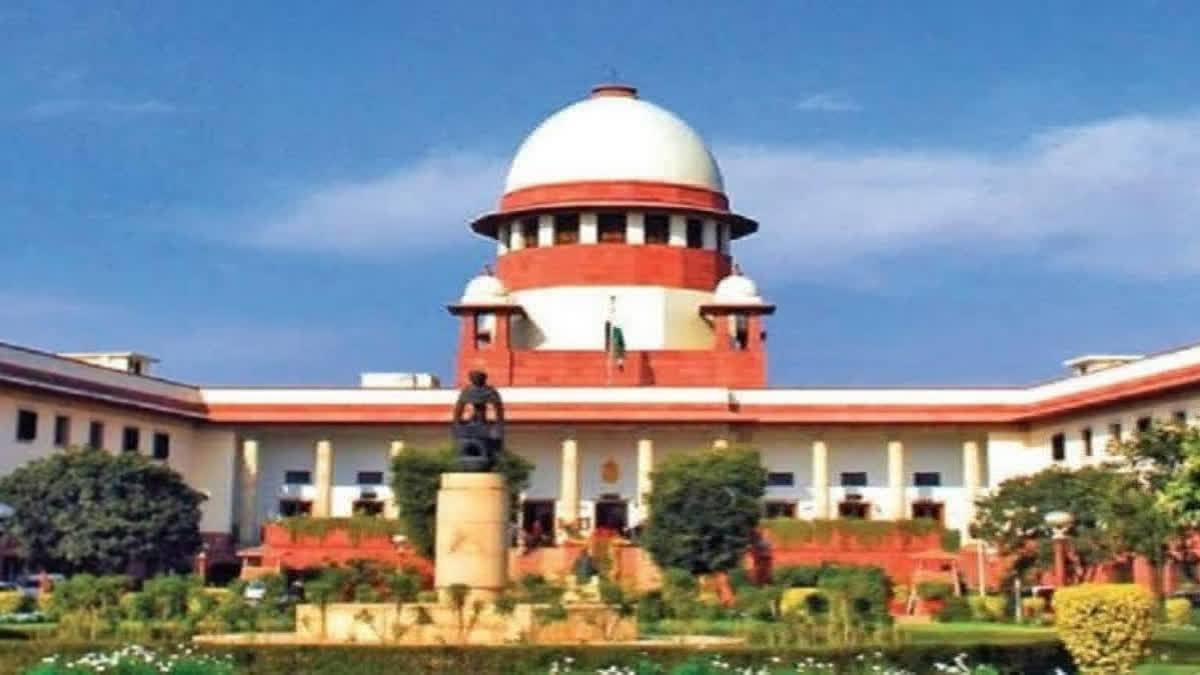New Delhi: The Supreme Court on Monday said judges of the apex court, the High Court, MPs, MLAs, officers of the All India Service (AIS) and journalists cannot be treated as a separate category for allotment of land at a discounted basic value in preference to others.
The apex court, while cancelling the allotment of land parcels to cooperative societies, within the Greater Hyderabad Municipal Corporation (GHMC) limits, said the state cannot exercise discretion to benefit a select few elites disproportionately, especially ones, who are already enjoying pre-existing benefits and advantages.
A bench comprising Chief Justice of India Sanjiv Khanna and Dipankar Datta cancelled the orders issued by the united Andhra Pradesh government in 2005 to allot land to MPs, MLAs, officers of the All India Service (AIS)/state government, judges of the constitutional courts, and journalists.
The bench said a careful study of the policy indicates that higher echelons of all the three wings of the government--legislators, bureaucrats and judges of the Supreme Court and High Courts--have been afforded such preferential treatment and journalists, who are considered the fourth pillar of democracy, have also been included.
“These four pillars of democracy are expected to act as checks and balances on the arbitrary exercise of the state’s power. However, the distribution of such extraordinary state benefits renders nugatory the very optics of healthy checks and balances within our democratic system," said the CJI, who authored the judgment on behalf of the bench.
The CJI said the core framework of these policies suffers from the malaise of unreasonableness and arbitrariness and it reeks of colourable exercise of power whereby the policymakers are bestowing valuable resources to their peers and ilk, triggering a cycle of illegal distribution of state resources.
“The state holds all its resources in trust for its citizens, to be utilised in larger public and social interest. The state, including the three organs--Legislature, Executive and the Judiciary-- are de facto trustees and agents/repositories which function and govern for the benefit of the citizens, who are the beneficiaries," said the bench, adding that the allotment policy fails to satisfy the requirements of the two-pronged classification test coupled with arbitrariness.
The CJI said the policies in question are a relevant example to show that merely being treated alike can lead to injustice and the pursuit of consistency through classification, while appealing in theory, does not ensure that the classification is either appropriate or equitable in practice.
“We believe that Judges of the Supreme Court and the High Court, MPs, MLAs, officers of the AIS and journalists cannot be treated as a separate category for allotment of land at a discounted basic value in preference to others. The object of the policy perpetuates inequality," said the bench.
The CJI said the policy differentiates and bestows largesse to an advantaged section/group by resorting to discrimination and denial and it bars the more deserving, as well as those similarly situated, from access to the land at the same price.
“It promotes social-economic exclusion, to favour a small and privileged section/group. The policy does not meet the equality and fairness standards prescribed by the Constitution”, said the bench, in its 64-page judgment.
The bench said the state has the discretion and duty under the Constitution, to distribute its resources to marginalised sections of society, or other imminent and deserving personalities, to the extent necessary to discharge their public functions.
The CJI said personalities, who contribute to the nation’s progress through excellence in sports or other public activities may also be compensated through reasonable and non-arbitrary distribution of state largesse.
The CJI said, “We would also like to clarify that a policy or law allotting land to public servants may be justifiable provided such allotment is within the confines of Article 14. Unless the classification satisfies the twin prong test and the substantive equality benchmark, the mandate of Article 14 is not met”.
He said the state cannot exercise discretion to benefit a select few elites disproportionately, especially ones who are already enjoying pre-existing benefits and advantages.
During the pendency of the matter before the High Court, several members of the judiciary decided to withdraw their applications for allotment of land. The bench said recognising the constitutional limitations and acknowledging that such allotment would violate Article 14, they made this decision upon thoughtful consideration. However, many others continued to defend the allotment, vigorously presenting arguments that they constituted a separate class with a rational nexus to the policy.
The apex court junked appeals filed by the Telangana government, the cooperative societies and their members, against the 2010 judgment of the Andhra Pradesh High Court. The bench also quashed subsequent orders issued by the state government in 2008 as bad in law, being violative of Article 14 of the Constitution.



